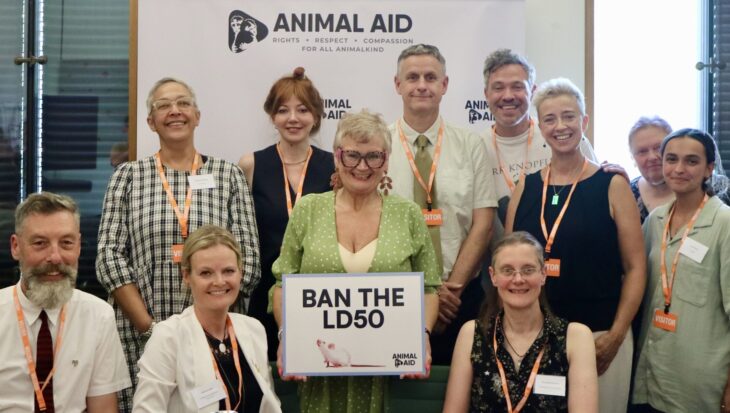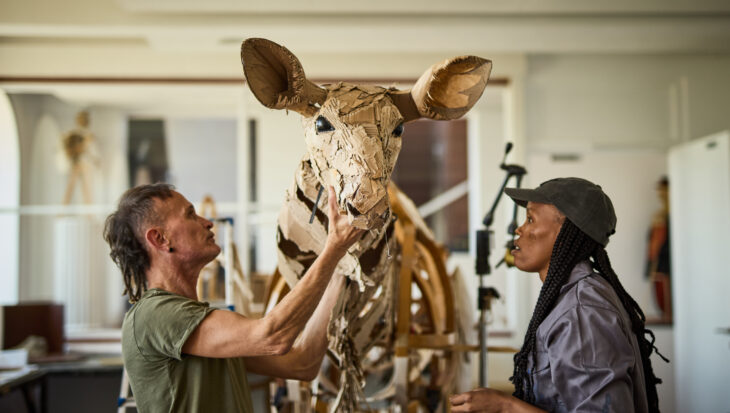Animal Aid in parliament to discuss ending animal tests
Yesterday, Animal Aid hosted a roundtable in Westminster, to meet with MPs and other invited guests to discuss the ending the LD50 and other animal tests.
Posted 02 Jul 2025

Posted on the 27th March 2015
A document published yesterday (March 26) by the government has confirmed its total lack of commitment to reducing the suffering of animals in laboratories.
When the coalition government came to office, it pledged to work to reduce the use of animals in scientific research. But throughout its time in power, the number of animal experiments has continued to rise, and has now reached its highest level since the current recording system began. Last February, the government finally published a document that was supposed to explain how a reduction in animal experiments would be achieved. But this failed to set any numerical targets for reducing animal numbers and focused instead on justifying and promoting vivisection. Animal Aid, together with other animal protection groups, submitted a detailed critique of the document, and has continued to lobby ministers and Home Office officials for concrete measures to reduce the number of animals used.
Now, just weeks before the general election, the government has published a follow-up to its shockingly weak plan for reducing the number of animals used in research. The government has completely ignored the criticisms and suggestions made by animal protection groups. Instead, it takes the opportunity to congratulate itself on schemes that invariably receive only a fraction of the government funding awarded to vivisection, and represent little more than a drop in the ocean. The new document appears to confuse genuine transparency about animal experimentation with public relations schemes that have been initiated by the pro-vivisection lobby. The ‘concordat on openness’, for example, is presented by the government as a victory for increased transparency. In reality though, the ‘concordat’ is simply a public relations exercise that has been orchestrated by pro-vivisection groups.
The government’s failure to reduce the number of animal experiments is not the only broken promise for animals in laboratories. The coalition government pledged to ban animal testing for household products, and later stated that the ban would include ingredients as well as finished products (in practice it is the ingredients that are generally tested on animals). Two weeks ago (March 12), the government announced a pitifully weakened version of the promised ban, which will allow ingredients to continue being tested on animals in some circumstances. This means that animals could continue to endure horrific suffering, such as having substances dripped into their eyes, for the sake of trivial products like new floor cleaners.
Whatever the outcome of the next general election, Animal Aid will be continuing its intensive programme of lobbying. A particular focus of this activity will be pushing for concrete measures to reduce the number of animal experiments, and for a full ban on animal testing for household products.
View the government report "Working to reduce the use of animals in scientific research"Yesterday, Animal Aid hosted a roundtable in Westminster, to meet with MPs and other invited guests to discuss the ending the LD50 and other animal tests.
Posted 02 Jul 2025

Have you heard? A breathtaking arts initiative, ‘The Herds’ will be arriving in London this Friday.
Posted 27 Jun 2025
